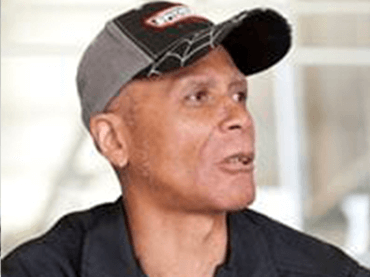Richard Fletcher participates in martial arts like Wu and Krav Maga to cope with the pain associated with sickle cell disease. One of four children, he lost his sister to sickle cell disease when he was young.
When asked about his earliest memories of dealing with sickle cell disease, Fletcher answered without hesitation:
“I’ve had complications with sickle cell disease all of my life. I've been in and out of the hospital for as long as I can remember. Seems like as soon as I got out, something would happen and I'd be back in again.
Not only did he have pain crises to deal with, Fletcher experienced multiple blackouts and seizures as a child because of sickle cell disease.
“I grew up with so many health problems and visits to the doctor and hospital, but one of the worst things was losing my sister to sickle cell disease. That really hurt,” says Fletcher.
Sickle Cell Disease Can Devastate Educational and Career Pursuits
It’s difficult to hold down a job or complete pursuits for a higher education when trying to deal with the pain and complications of sickle cell disease.
“I had to drop out of college after a year and a half. That put a stop to my goal of graduating college. And it’s difficult to hold down a job when you’re always sick,” observes Fletcher.
Employers who don’t understand what sickle cell is all about often fire employees who miss too much work due to complications of this serious, inherited blood disorder.
“People just don’t understand about sickle cell disease,” laments Fletcher. “If you had cancer and had to miss lots of work because of it, they’d understand, but that’s not the case with sickle cell.”
Hydroxyurea and Exercise — Finding Peace Amidst the Chaos
Fletcher deals with some level of pain on most days, but doesn’t have nearly as many bouts with severe pain since he started taking hydroxyurea.
This medication helps control the frequency and intensity of sickle cell pain crises.
“I take my hydroxyurea and I exercise. For exercise, I like to walk, do my Wu and Krav Maga, as well as use my throwing knives. Staying active with martial arts helps me find peace and a place of total calm within myself,” explains Fletcher.
He reports that the exercise and hydroxyurea keep his pain episodes at bay. When he does have intense pain, it doesn’t last as long.
Advice for Those with Sickle Cell Disease
According to Fletcher, growing up in the projects around Pittsburgh, Pa., helped to toughen him up. His family’s perseverance through hardship taught him to be tough as well.
“Keep a strong and happy attitude to get through the painful times. I had times in the hospital when I was hollering and screaming in pain, but there was nothing they could do to help me. It’s the strong attitude and lots of prayer that got me through these times. I’m shocked every single day that I actually wake up. I think God helps me a lot. Keeping the faith along with trying to maintain a positive attitude has saved me this far.”
Fletcher urges people to seek genetic counseling if they have a history of sickle cell disease or sickle cell trait in their families.
“I have a great niece with a child who suffers from sickle cell. The baby is always in the hospital and isn't doing so well sometimes,” says Fletcher.
Getting tested and seeking medical advice when starting a family may save people from a lot of pain in the future until scientists find a viable, accessible cure.

















